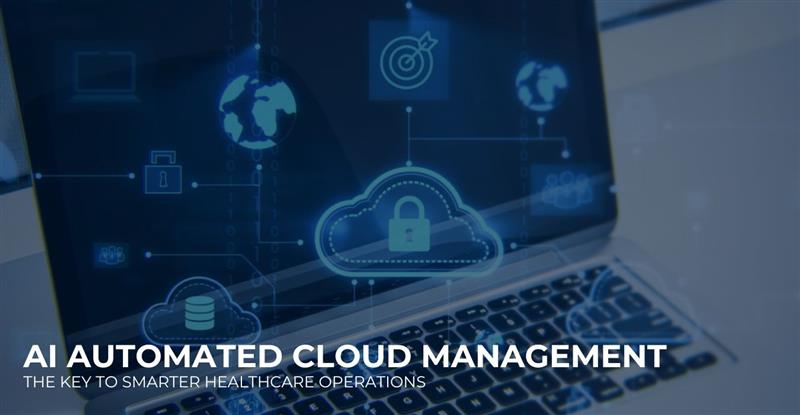In today's fast-paced environment, the Information Technology (IT) sector stands out as one of the…

Cloud Computing in Healthcare: Reshaping the Industry with Cloud Solutions
The healthcare industry has witnessed a remarkable transformation with the adoption of cloud computing technologies. Cloud computing has revolutionized the way healthcare organizations store, manage, and analyze data, offering numerous benefits such as enhanced collaboration, increased efficiency, and improved patient care. This article explores the significant role of cloud computing in healthcare, highlighting its impact on various aspects of the industry.
The Power of Cloud Computing in Healthcare:
Cloud computing has emerged as a game-changer in the healthcare sector, enabling healthcare providers to overcome traditional limitations and unlock new possibilities. By leveraging the cloud, healthcare organizations can store and access vast amounts of data securely and in real time, regardless of geographical location. The scalability and flexibility offered by cloud solutions empower healthcare professionals to optimize their operations and deliver improved patient outcomes.
Streamlining Data Storage and Management:
One of the key advantages of cloud computing in healthcare is its ability to streamline data storage and management. Cloud-based electronic health record (EHR) systems have replaced traditional paper-based records, enabling healthcare providers to access patient information instantly. This enhances the efficiency of healthcare workflows, reduces administrative burdens, and minimizes the risk of errors. Cloud storage also ensures data redundancy and disaster recovery, safeguarding patient information from loss or damage.
Enhancing Collaboration and Communication:
Cloud computing facilitates seamless collaboration and communication among healthcare professionals, irrespective of their physical location. Through cloud-based platforms, healthcare teams can securely share patient data, test results, and medical imaging files, enabling multidisciplinary collaboration and timely decision-making. This promotes a team-based approach to healthcare delivery and enhances patient safety and care coordination.
Advanced Analytics and Insights:
The integration of cloud computing and advanced analytics has revolutionized data analysis in healthcare. By harnessing the power of the cloud, healthcare providers can leverage big data analytics, machine learning, and artificial intelligence to derive valuable insights from vast datasets. These insights can aid in early detection of diseases, personalized treatment plans, and improved population health management. Cloud-based analytics also enable predictive modeling, empowering healthcare providers to make informed decisions and enhance overall patient care.
Telemedicine and Remote Patient Monitoring:
Cloud computing has played a vital role in the rapid growth of telemedicine and `. Through cloud-based platforms, healthcare providers can deliver virtual consultations, monitor patients remotely, and provide continuous care. Cloud solutions enable secure video conferencing, real-time data transmission from medical devices, and remote access to patient records, making healthcare services more accessible, efficient, and convenient for patients, especially in remote areas.
Ensuring Data Security and Privacy:
Data security and privacy are of utmost importance in the healthcare industry. Cloud computing providers implement robust security measures to protect patient data from unauthorized access or breaches. Cloud solutions offer encryption, access controls, and regular security updates to ensure compliance with regulatory standards such as the Health Insurance Portability and Accountability Act (HIPAA). Additionally, cloud service providers often have dedicated teams focused on maintaining data security, alleviating the burden on healthcare organizations.
Conclusion:
Cloud computing has emerged as a transformative force in the healthcare industry, reshaping the way healthcare organisations operate and deliver patient care. With the ability to streamline data storage, enhance collaboration, enable advanced analytics, and support telemedicine, our managed cloud services offer unparalleled opportunities for improved efficiency, patient outcomes, and innovation. As the healthcare industry continues to embrace cloud solutions, it is crucial for organisations to prioritize data security and privacy, ensuring the safe and responsible use of cloud computing technologies.
Also Read:




